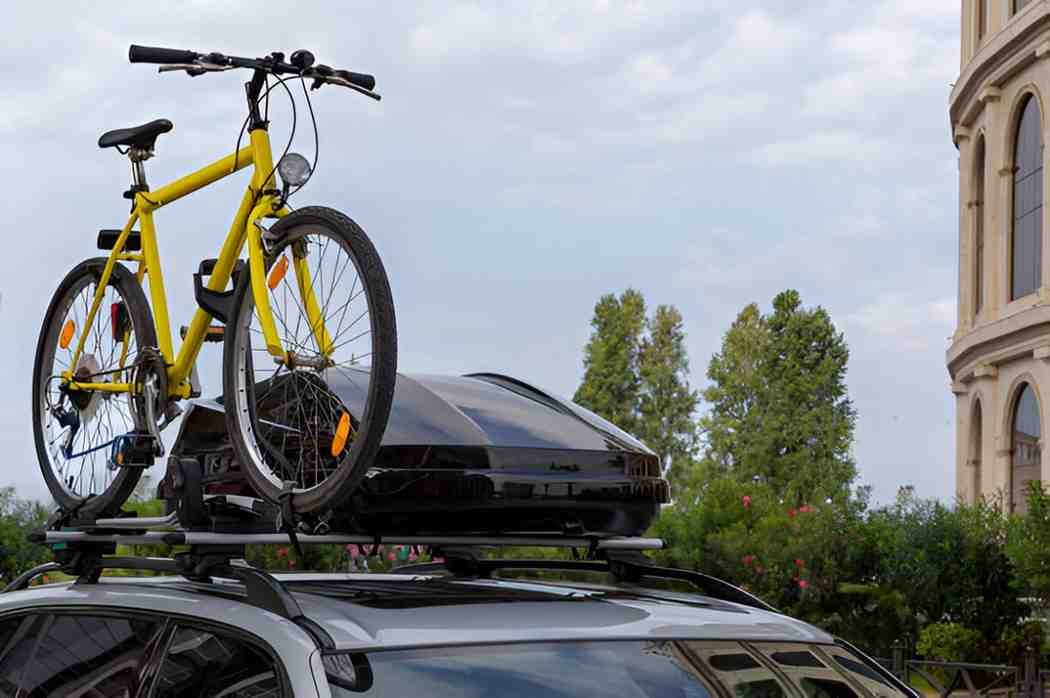When it comes to transporting bikes, whether for a family trip, a weekend ride, or a cycling competition, a good bike rack can make all the difference. After trying a variety of options myself, I can confidently say that the right bike rack can make your travels more convenient and secure, while the wrong one can cause a headache. With so many choices on the market, though, it can be tricky to choose the best one for your needs. That’s why I’ve put together this guide: to help you find the best bike racks for cars, considering all the factors that are important to you. Whether you’re a seasoned cyclist or a weekend adventurer, this guide will walk you through the various options and help you make an informed decision.
Table of Contents
Types of Bike Racks
First, let’s start with the basics. There are several types of bike racks, each with its own set of pros and cons. Understanding these will help you make the right decision based on your car, budget, and the number of bikes you need to transport.
1. Hitch-Mounted Bike Racks
These are perhaps the most popular type of bike racks. They fit into your car’s hitch receiver and are generally quite sturdy. The key benefits of hitch-mounted bike racks are their ease of use and their ability to carry multiple bikes securely.
- Pros:
- Stable and secure.
- Easy to load and unload bikes.
- Can hold multiple bikes.
- Doesn’t interfere with rear trunk access (on many models).
- Cons:
- Requires a hitch receiver, which may not be available on all vehicles.
- Can be bulky and add extra length to your vehicle.
2. Trunk-Mounted Bike Racks
Trunk-mounted racks are a great option if you don’t want to install a hitch receiver on your car. These racks attach to your car’s trunk or rear hatch with straps and are typically lightweight and easy to install.
- Pros:
- No hitch receiver needed.
- Usually more affordable.
- Easy to store when not in use.
- Cons:
- May scratch your car if not properly padded.
- Can be less secure than hitch-mounted racks, especially on rough roads.
- Limited to carrying fewer bikes, typically two to three.
3. Roof-Mounted Bike Racks
Roof-mounted racks attach directly to your vehicle’s roof bars. This option is excellent if you don’t want your bike to block your rearview or taillights.
- Pros:
- Doesn’t block trunk access or rearview.
- Keeps your car’s rear area clear.
- Can carry bikes without removing wheels (depending on the model).
- Cons:
- Requires roof bars, which may not come standard with your car.
- Loading and unloading can be cumbersome.
- Increases the height of your vehicle, which can be problematic for low-clearance areas or car washes.
4. Spare Tire-Mounted Bike Racks
If your vehicle has a spare tire mounted on the back, you can opt for a spare tire-mounted bike rack. These racks mount onto the spare tire and are often used for off-road vehicles like SUVs.
- Pros:
- Easy to install on cars with a rear-mounted spare tire.
- Does not require a hitch receiver.
- More affordable than hitch racks.
- Cons:
- Can carry only a limited number of bikes.
- Not suitable for vehicles without a rear spare tire.
Key Factors to Consider When Choosing a Bike Rack
When shopping for a bike rack, there are several factors I recommend you consider. These will help ensure you get the right rack for your needs, your car, and your lifestyle.
1. Car Compatibility
One of the first things to consider is whether the bike rack is compatible with your vehicle. For example, hitch-mounted racks require a hitch receiver, so make sure your car has one. Trunk-mounted racks, while more universal, may not work well on some vehicle designs, especially if your car has a sloped rear or spoiler. Roof-mounted racks require roof bars, so check if your car has them or if you can add them.
2. Capacity
How many bikes do you need to transport? Most racks can hold two to four bikes, but some hitch-mounted racks can carry up to five or more. If you have a large family or a group of cycling friends, you may need a larger rack. Think about how often you’ll be transporting bikes and whether the rack will need to handle different types of bikes (e.g., mountain bikes, road bikes, kids’ bikes).
3. Ease of Use
You’ll want a bike rack that’s easy to install, load, and unload. If you’re someone who frequently uses the bike rack, consider models with features that make the loading process quicker and less stressful. Features like tilting racks, which allow access to the trunk, can be a game changer.
4. Security
Bike racks should keep your bikes secure during transport. Look for models with anti-theft features like locks for both the rack and the bikes. Some racks come with built-in locks, while others allow you to add your own.
5. Storage Space
Consider how much space the bike rack will take up when not in use. Some racks fold down when not in use, making them easier to store. If you don’t have a lot of storage space, look for a compact or foldable model.
6. Price
Prices can vary significantly based on the type and brand of the bike rack. Hitch-mounted racks tend to be more expensive, especially if they carry multiple bikes, while trunk-mounted racks are more affordable. It’s important to balance your budget with the features you want. You’ll want something that’s durable and secure but also within your price range.
Comparison Table: Bike Rack Types
Here’s a quick overview of the pros and cons of each bike rack type to help you choose.
| Type | Pros | Cons |
|---|---|---|
| Hitch-Mounted | Stable, secure, easy to load/unload, can carry multiple bikes. | Requires a hitch receiver, bulky. |
| Trunk-Mounted | Affordable, no hitch needed, easy to store. | Less secure, may scratch car, limited capacity. |
| Roof-Mounted | Keeps rear area clear, no interference with trunk access. | Requires roof bars, difficult to load/unload, increases height. |
| Spare Tire-Mounted | Easy to install, no hitch needed, affordable. | Limited capacity, only works with cars with a rear spare tire. |
Top Picks: Best Bike Racks for Cars
Now that you have a good idea of what to look for, let me share a few models that I believe are among the best in their respective categories. These are based on my own experience and reviews from other cyclists.
1. Thule T2 Pro XT 2 Hitch Bike Rack
This hitch-mounted rack is incredibly sturdy and easy to use. It’s one of the best racks I’ve tried for carrying multiple bikes, and it has a great tilting feature that allows for easy trunk access.
- Pros:
- High capacity (up to two bikes, with an option for more).
- Tool-free installation.
- Adjustable cradles for different bike sizes.
- Cons:
- On the expensive side.
- Requires a 2-inch hitch receiver.
2. Yakima HalfBack 2 Trunk Bike Rack
If you’re looking for an affordable, no-hitch-required option, this trunk-mounted rack is a solid choice. It’s lightweight and easy to install and provides good bike security with adjustable straps.
- Pros:
- No hitch needed.
- Quick installation.
- Affordable price.
- Cons:
- Can be less stable than hitch-mounted racks.
- Not ideal for larger vehicles.
3. Kuat NV 2.0 Hitch Bike Rack
The Kuat NV 2.0 is one of the most user-friendly and high-quality hitch racks I’ve used. It’s well-constructed and features a built-in repair stand, which is a nice bonus for cyclists.
- Pros:
- High weight capacity.
- Built-in bike repair stand.
- Sleek, modern design.
- Cons:
- High price tag.
- Requires a 2-inch hitch receiver.
4. RockyMounts BrassKnuckles 2-Bike Rack
This hitch-mounted rack is great for cyclists who want a reliable, easy-to-use rack that won’t break the bank. It’s solid, secure, and well-designed.
- Pros:
- Affordable.
- Easy to install.
- Secure and stable.
- Cons:
- Limited capacity (only two bikes).
- No tilt feature.
Final Thoughts
Choosing the best bike rack for your car really comes down to your specific needs. Are you someone who bikes frequently, or just on weekends? Do you need to carry multiple bikes? How much are you willing to spend? With the variety of options out there, it’s important to consider all of the factors I’ve discussed in this guide.
I hope this article has made the process easier for you. Whether you’re looking for a top-of-the-line hitch rack or an affordable trunk-mounted option, there’s something for everyone. Remember, the best bike rack is one that fits your car, meets your needs, and keeps your bikes secure on your journeys.





